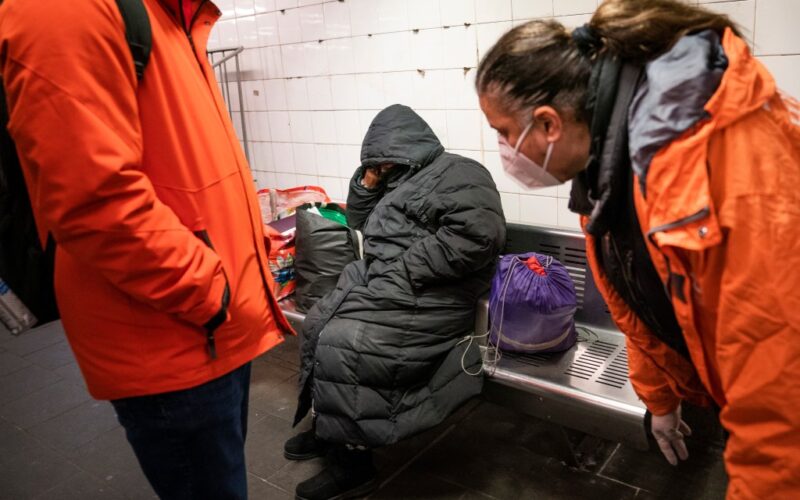Our mental health system is running on fumes. For too long, it has been underfunded and shaped by politics rather than evidence. As chairs of the Senate and Assembly Committees on Mental Health, we know what works — and we see only one New York City mayoral candidate with a clear, effective plan: Zohran Mamdani.
New Yorkers need greater access to permanent supportive housing, which provides long-term stability and dignity. Peer-led programs like community clubhouses offer critical connections that prevent crises before they happen. And when crises do occur, they must be met by trained mental health professionals — not law enforcement.
Decades of disinvestment have left us with too few hospital beds and too many clinics scraping by on shoestring budgets. Medicaid cuts in 2019 by then-Gov. Andrew Cuomo only made matters worse. While recent state investments are beginning to repair this damage, the gap remains wide.
When preventive care and treatment aren’t available, the consequences spill into our streets and subways. People struggling with untreated mental illness are too often left visible and vulnerable, sometimes making others feel unsafe — even though they are far more likely to be the victims of crime than the perpetrators. And when first responders without proper training intervene, situations can escalate instead of resolve.
Mamdani’s plan recognizes this reality and offers solutions. His proposal for a Department of Community Safety would direct $362.8 million toward mental health services and prioritize the peer-led, community-based programs that improve outcomes. His reforms to the city’s existing B-HEARD program would ensure that crisis calls are answered by health professionals, not police.
Right now, police officers are too often tasked with responding to mental health calls — part of the reason that response times to other incidents have increased significantly over the last few years and now average closer to 16 minutes. Mamdani’s approach helps people in need while allowing officers to focus on urgent public safety concerns.
This vision aligns closely with our own legislative work to pass Daniel’s Law (S3670 / A4617) and create a statewide mental health crisis response system. Treating mental health and substance use crises as public health issues is both humane and effective. Crisis teams — composed of social workers, counselors, medical staff, and peers — provide the care people need in their most vulnerable moments.
New York State has already made significant investment in this effort through the work of the Daniel’s Law Task Force, established in 2023. After a year of research, community input, and analysis of successful models across the country, the Task Force’s findings were clear: health-led crisis response saves lives, reduces arrests, and builds trust in our public systems.
Mamdani’s mental health plan puts these principles into action. His commitment to expanding non-police crisis teams, investing in supportive housing, and strengthening community-based services directly reflects the Task Force’s recommendations. It also aligns with our shared commitment to passing statewide legislation to deliver a compassionate, coordinated, and evidence-based approach to mental health care.
His plan also underscores the power of supportive housing. The “Housing First” model, which helped New York City virtually eliminate veteran homelessness, is the gold standard for addressing both homelessness and mental illness. Stable housing is the foundation for recovery and community stability.
Equally important are community clubhouses, which provide restorative environments where people can find support with employment, education, and relationships. These services strengthen individuals and communities while reducing the strain on law enforcement and hospitals.
At Fountain House, the city’s largest peer clubhouse, participants were up to 45% less likely to end up in the ER or hospital, Medicaid costs were 21% lower than comparable cases, and members were 56% less lonely and reported 50% greater employment rates. It costs approximately $4,000 to provide services for each member annually. By contrast, that’s roughly the same amount it costs for just a two day hospital stay for people experiencing a mental health crisis, or only three days on Rikers Island.
Mamdani’s bold, refreshing, evidence-based approaches invite New Yorkers to envision more for their city. More resources, more support, and a more effective approach to public safety.
His vision reflects both compassion and common sense. By investing in housing, crisis response, and community-based care, he offers New York City a path toward safety and dignity for all. That is why we proudly endorse him for mayor.
Brouk is a state senator from Rochester and Simon is an Assembly member from Brooklyn. They chair the Senate and Assembly committees on Mental Health.








